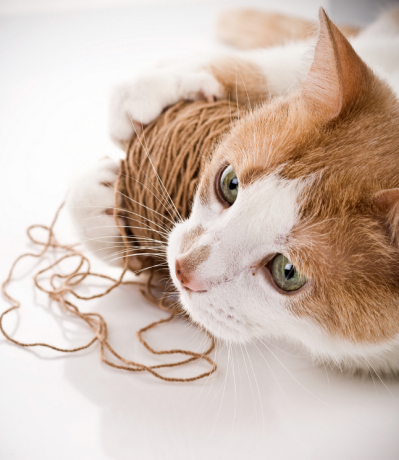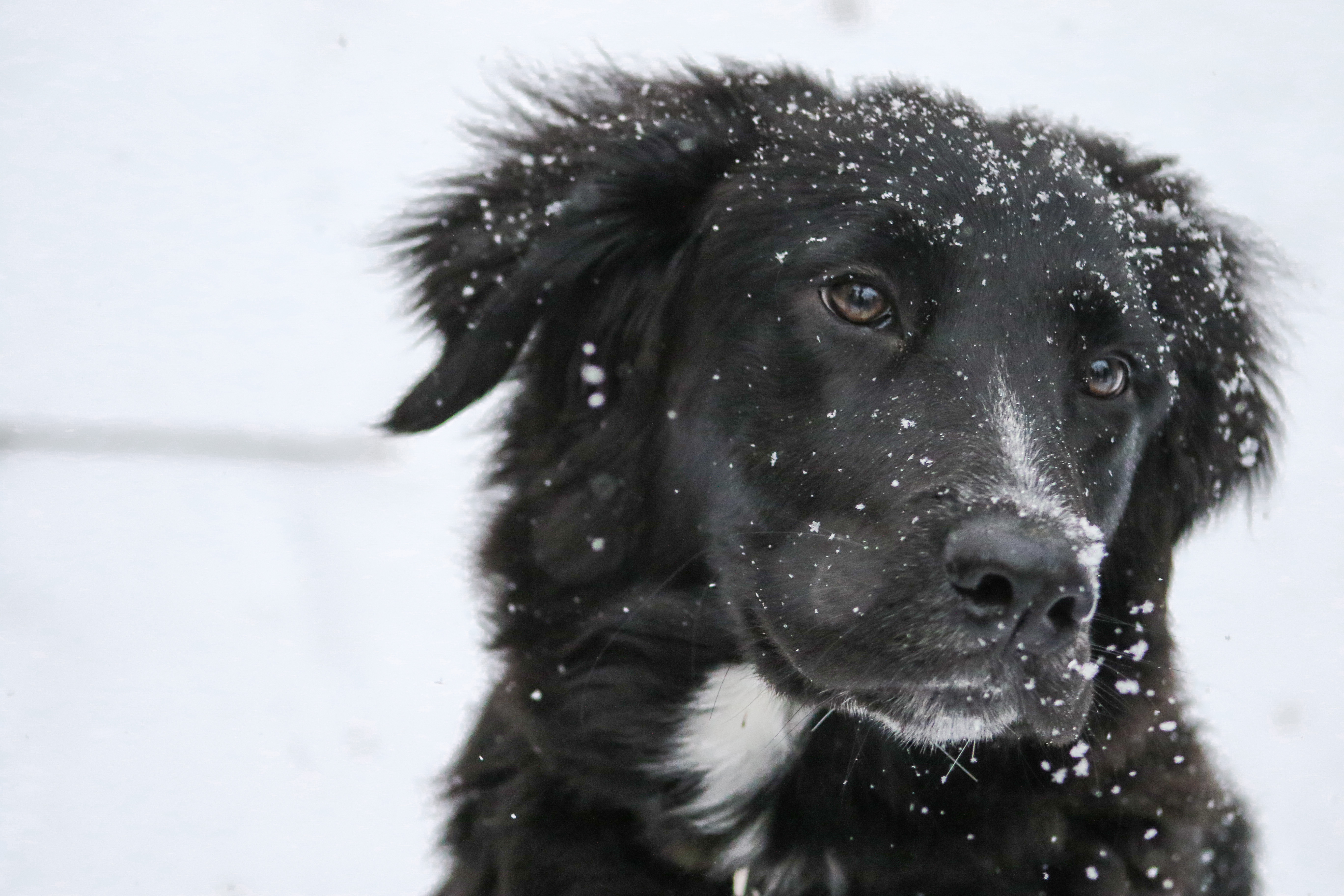Keeping pets active, safe and stimulated throughout the winter months promotes mental and physical health, and offers opportunities to strengthen bonds between person and pet.
While pet parents might be content to curl up on the couch with a mug of hot cocoa and a movie daydreaming of warmer climes, dogs and cats need other ways to stave off winter boredom and physical complacency.
Winter pet safety
- Keep outdoor time to a minimum: Limit your pet’s outdoor time during the winter, especially when the temperature dips below freezing. Pets are at higher risk of frostbite, especially on their extremities – ears, tails and feet. Provide adequate shelter for pets who normally spend extended periods of time outside, ensuring it is dry and warm, and shields them from wind, rain, snow and other weather.
- Give your pet a spa day: A fur coat is not enough to protect pets from the most severe winter weather. Regularly groom your pets to maximize the insulation capacity of their coats.
- Beware of what lies underfoot: Antifreeze is poisonous and can be deadly if consumed, while rock salt can irritate paws. Wash or wipe your pet’s paws after every walk, including between the pads where dirt, ice and other hazards can collect. Consider protective salves like Musher’s Secret, or booties if your dog will tolerate them.
- See and be seen: Put a brightly colored jacket on your dog if you plan to take a walk in the woods or other low-visibility areas, and avoid frozen bodies of water since falling through the ice can develop into a life-threatening situation very quickly, especially if you are walking in a remote area.
- Sympathy for seniors: Older pets require special winter weather care. Do not over-exert them, and be mindful that the cold is worse for dogs and cats with arthritis and other joint conditions, pets with physical disabilities, and those who are sick or coping with chronic medical conditions. Heed your pet’s cues about when enough is enough.
- Drink up: Give your pet plenty of fresh water, since the drier environment both inside and outside your home can lead to dehydration.
- Winterize your pet’s diet: Some veterinarians believe that pets should not eat cold meals in cold weather since they cause them to expend too much energy heating their bodies, and most agree that your pet’s diet should reflect his energy level and medical needs. Consult with your veterinarian before undertaking any dietary changes – whether changing meal type, food or quantity.
- Pay attention: Monitor your pets around radiators, space heaters, candles or other items that can burn them or create a hazard if they knock them over.
Winter activities for your pet’s body and mind
It is not enough just to keep your pets safe during winter; you need to ensure they get adequate stimulation – mental and physical – to avoid boredom, weight gain and destructive behaviors.
- Daily devotion: No matter the time of year or weather, every dog needs dedicated playtime and daily exercise – even if inclement weather makes a long walk prohibitive. If there is snow on the ground, try an outdoor game of fetch with loosely packed snowballs. Toys and treats can also be buried in the snow for your dog to discover – a game that can be adapted for indoor play by hiding small treats around your home.
- Get the gray matter going: Brain games and puzzles are great for your pets any time of year, but are especially helpful when inclement weather makes outdoor play impossible.

- Practice makes perfect: Winter is a great time to reinforce your dog’s training in the comfort of your home. As an alternative, sign up for an obedience class – a terrific opportunity to work on your pet’s social skills.
- Run… errands: More stores are welcoming well-mannered pets, which exposes your dog to new situations and people. Since many national brand stores are actually individually owned, call ahead to see if pets are permitted before bringing along your dog or cat. If your destination is not pet friendly, however, leave him at home for his own safety.
- Inspire your cat’s inner hunter: Cats love looking out the window; it brings out their natural hunting instincts. Position shelves or other perches near windows to make it easier for them to gaze outside. Putting a bird or squirrel feeder by a window will attract wildlife closer to your home, engage your cat’s interest even more.
- Vary toys: Rotate different toys so that only a limited number are available at a time. As your cat tires of one toy another can be introduced.
- Hide and seek: Try hiding treats around the house, especially those of a catnip variety. Like dogs, cats also enjoy treat discovery games.
While winter may seem cold and at times endless, there are many ways for pets and their people to enjoy the season together – safely, and to the benefit of body and mind.
What is your pet’s favorite winter pasttime?












Hello Beth Zimmerman,
How are you? I am one of the regular readers of your blog but never write a comment before. But today I am writing one. your site has a lot of informative posts as this one. We should aware of before winter that it can not harm our dog health. You have mentioned spa day and regular grooming that are very important. Also, you have written about the winter jacket, fresh water, special diet and proper medication if needed. Overall it’s a complete package of winter care for a dog.
Every dog owner should read this post. You deserve special thanks.
I found the article very useful and informative. The best part of the article is that every activity mentioned in the article is very easy to do at home. I too have one dog and he always suffers from winter time hazards, but now I think that these tips will give me some relief.
Glad you found the article helpful, John. We do try to share tips that anyone can do at home.